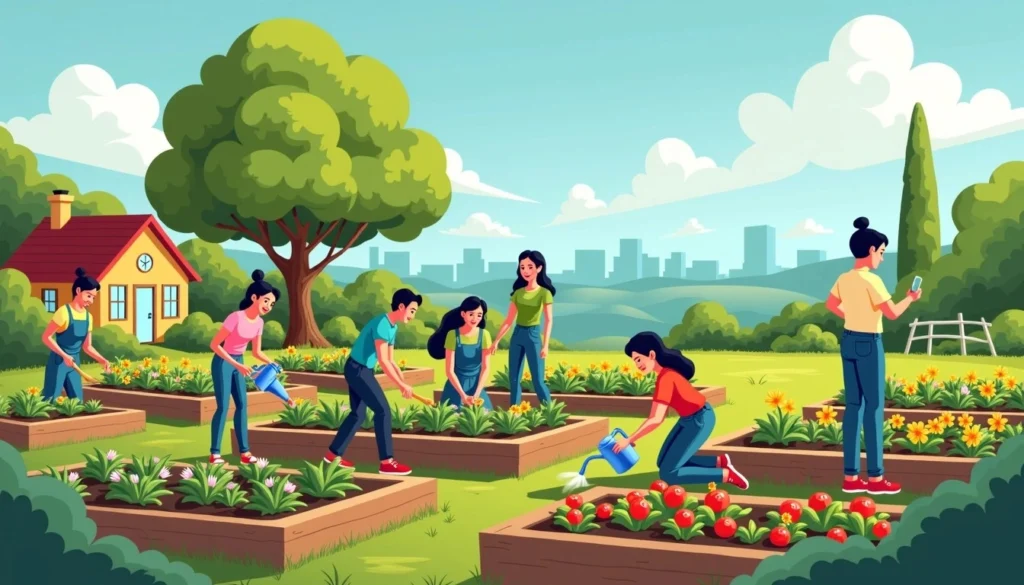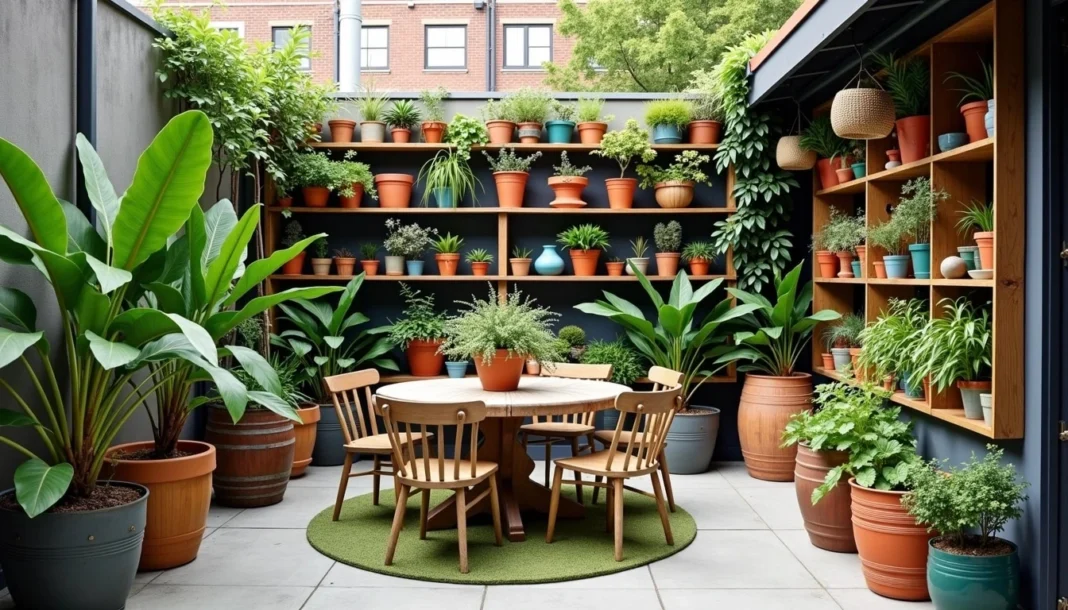Urban Gardening: A Green Revolution in Modern Cities
Urban gardening has become a transformative movement, bringing the essence of nature to bustling cityscapes. As more people recognize the importance of sustainable living, It has emerged as a powerful solution to combat environmental challenges and improve quality of life. In this article, we will explore the numerous benefits of urban gardening, its role in urban sustainability, and how you can start your green journey, all while maintaining a focus on this growing trend.
What is Urban Gardening?
Urban gardening refers to the practice of cultivating plants, including fruits, vegetables, herbs, and ornamental greenery, within urban areas. From rooftop gardens and vertical walls to community plots and balcony planters, It takes various forms to fit into limited city spaces. It is not just a hobby but a lifestyle that promotes environmental awareness and self-sufficiency.
Benefits of Urban Gardening
Urban gardening offers a plethora of benefits that extend beyond the aesthetics of greenery in concrete jungles. Let’s delve into the key advantages:
- Improved Access to Fresh Produce Urban gardening allows city dwellers to grow their own fruits, vegetables, and herbs, ensuring access to fresh, organic, and pesticide-free produce. This not only promotes healthier eating habits but also reduces dependency on store-bought items.
- Enhanced Mental Health Spending time with plants has been proven to reduce stress, anxiety, and depression. It provides an opportunity to reconnect with nature, offering therapeutic benefits in today’s fast-paced lifestyle.
- Environmental Sustainability By incorporating green spaces in urban areas, It helps reduce the urban heat island effect, improves air quality, and supports biodiversity. Plants absorb carbon dioxide and release oxygen, contributing to cleaner and healthier cities.
- Community Building Community gardens serve as hubs for social interaction, fostering relationships among neighbors and creating a sense of belonging. These spaces encourage knowledge sharing and collective efforts toward sustainable living.
- Economic Savings Growing your own food can significantly reduce grocery bills. Urban gardening also creates opportunities for selling surplus produce, contributing to local economies.
- Educational Opportunities It serves as an educational tool, teaching children and adults about food production, sustainability, and the importance of protecting the environment.

Urban Gardening Techniques
Adopting urban gardening doesn’t require extensive land or resources. Here are some innovative techniques to get started:
- Container Gardening: Perfect for balconies and small patios, this involves growing plants in pots, buckets, or other containers.
- Vertical Gardening: Utilize walls and fences for growing plants vertically, maximizing limited space.
- Rooftop Gardening: Convert rooftops into lush gardens, providing insulation and reducing energy consumption.
- Hydroponics and Aquaponics: These soil-less gardening techniques use water and nutrients, ideal for urban areas with limited soil access.
- Community Gardening: Collaborate with neighbors to cultivate shared plots, promoting teamwork and sustainability.
Steps to Start Your Urban Garden
Starting an urban garden may seem daunting, but with the right approach, it’s a rewarding endeavor. Follow these steps:
- Assess Your Space: Identify available space, whether it’s a balcony, rooftop, or windowsill.
- Choose Your Plants: Select plants suited to your space and climate. Herbs, tomatoes, and leafy greens are excellent for beginners.
- Prepare the Soil: If using soil, ensure it’s nutrient-rich and well-draining. For hydroponics, invest in quality systems.
- Gather Tools and Materials: Equip yourself with basic gardening tools, containers, and seeds or seedlings.
- Plan Your Layout: Arrange plants based on their sunlight and water needs to optimize growth.
- Maintain Regular Care: Water plants consistently, provide adequate sunlight, and use natural fertilizers for nourishment.
Challenges and Solutions in Urban Gardening
While It has numerous benefits, it’s not without challenges. Here’s how to address common issues:
- Limited Space: Use vertical gardening techniques or hanging planters to maximize available space.
- Lack of Sunlight: Opt for shade-tolerant plants or use grow lights to supplement natural light.
- Pest Problems: Employ organic pest control methods like neem oil or companion planting.
- Water Scarcity: Collect rainwater or use drip irrigation systems to conserve water.
Urban Gardening and Sustainability
Urban gardening plays a crucial role in promoting sustainability. It reduces the carbon footprint associated with transporting produce from farms to cities, minimizes food waste, and encourages eco-friendly practices. By integrating green spaces into urban planning, cities can become more resilient to climate change and foster healthier environments for their residents.
Success Stories: Urban Gardening in Action
Cities around the world are embracing this as a solution to urbanization challenges. For instance:
- In Singapore, rooftop gardens and vertical farming have revolutionized agriculture in the densely populated city-state.
- New York City’s community gardens bring diverse communities together, transforming vacant lots into vibrant green spaces.
- Mumbai’s terrace gardens are inspiring urban dwellers to grow their own food amidst limited space.
Why Urban Gardening Matters
Urban gardening is more than just a trend; it’s a necessity for building sustainable cities. It empowers individuals to take control of their food supply, reduces environmental degradation, and enhances overall well-being. As cities continue to grow, It offers a way to harmonize urbanization with nature.
Conclusion
Urban gardening is a rewarding practice that brings immense benefits to individuals, communities, and the environment. Whether you’re looking to grow fresh produce, reduce stress, or contribute to a greener planet, urban gardening offers a viable path. By embracing this movement, we can transform our cities into sustainable, thriving ecosystems where nature and urban life coexist harmoniously.
So, why wait? Start your urban gardening journey today and experience the joy of cultivating a greener future.








[…] How To Transform Your Life With Urban Gardening Benefits […]
[…] Also Read […]
[…] Gardening isn’t just for retirees. People of all ages are digging into the soil for good reason. Studies from Harvard Health show that gardening burns calories, improves hand strength, and reduces the risk of dementia by 36%. […]